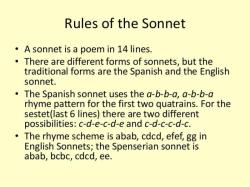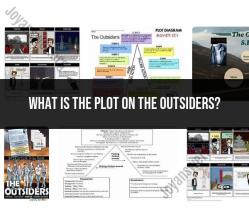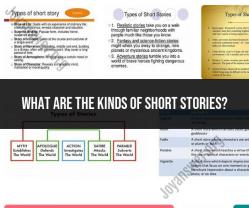What is an author’s purpose?
An author's purpose refers to the primary reason or intent behind writing a particular piece of text. It is the goal or objective that the author hopes to achieve through their writing. Authors write for various purposes, and these purposes can be broadly categorized into the following:
To Inform: In this case, the author's primary purpose is to provide information, facts, or knowledge to the reader. Texts written to inform aim to educate and explain, such as news articles, textbooks, encyclopedias, and scientific reports.
To Persuade: When authors write to persuade, they aim to influence the reader's beliefs, opinions, or actions. Persuasive writing is often seen in advertising, editorials, political speeches, and opinion pieces where the author seeks to convince the audience of a particular viewpoint or argument.
To Entertain: Some authors write primarily for the purpose of entertaining their readers. This includes genres like fiction (novels, short stories), poetry, humor, and creative writing. The main goal here is to engage the audience and provide enjoyment or amusement.
To Express or Reflect: Authors may write to express their thoughts, emotions, or personal experiences. Journaling, diaries, autobiographies, and personal essays fall into this category. The primary purpose is self-expression and reflection.
To Instruct or Guide: In instructional or guide writing, the author's purpose is to provide step-by-step directions, advice, or guidance on how to do something. Examples include instructional manuals, how-to guides, and self-help books.
To Describe or Narrate: Authors may write to describe a person, place, object, or event in detail or to narrate a story. Descriptive and narrative writing aims to create a vivid picture or engage the reader's imagination.
To Express Creativity: Creative writing, such as poetry and fiction, often serves the purpose of artistic expression. The author may aim to create literary works that evoke emotions and provoke thought.
To Document or Record: Historical accounts, biographies, and documentary writing are intended to document events, lives, or experiences for posterity. The primary purpose is to record facts and experiences accurately.
Understanding an author's purpose is essential for readers because it helps them interpret the text more effectively and critically. Identifying the purpose can also aid in analyzing the author's writing style, tone, and the techniques used to achieve that purpose. Additionally, recognizing the author's intent allows readers to evaluate the text's credibility and relevance to their own needs and interests.
Deciphering an Author's Purpose: Understanding Intent in Writing
An author's purpose is their reason for writing. It is their goal in communicating with the reader. Authors may write to inform, persuade, entertain, or express themselves.
Understanding an author's purpose is essential for understanding and interpreting their writing. By understanding the author's purpose, we can better understand their message and their perspective.
The Writer's Agenda: Identifying and Analyzing Authorial Purpose
There are a number of different ways to identify and analyze an author's purpose. Here are a few tips:
- Consider the title, subtitle, and introduction. The title, subtitle, and introduction can often provide clues about the author's purpose. For example, if the title of an essay is "The Dangers of Climate Change," it is likely that the author's purpose is to inform the reader about the dangers of climate change or to persuade the reader to take action to address climate change.
- Analyze the author's tone and style. The author's tone and style can also provide clues about their purpose. For example, if an author uses a formal tone and style, they may be trying to inform or persuade the reader. If an author uses a casual tone and style, they may be trying to entertain or express themselves.
- Pay attention to the author's evidence and arguments. If the author uses evidence and arguments to support their claims, they are likely trying to inform or persuade the reader. If the author does not use evidence or arguments, they may be trying to express themselves or entertain the reader.
Author's Intent Revealed: How to Determine Why a Text Was Written
Once you have identified a few clues about the author's purpose, you can start to determine why the text was written. Ask yourself the following questions:
- What does the author want me to know, believe, or do?
- What information is the author trying to convey?
- What arguments is the author making?
- What perspective is the author trying to present?
By answering these questions, you can gain a better understanding of the author's purpose and the message of the text.
Here are some examples of different author's purposes:
- To inform: The author wants to teach the reader something. For example, a news article or a textbook may have the purpose of informing the reader about a current event or a topic of study.
- To persuade: The author wants to convince the reader to agree with a particular point of view or to take a particular action. For example, a political speech or an advertisement may have the purpose of persuading the reader to vote for a particular candidate or to buy a particular product.
- To entertain: The author wants to amuse the reader. For example, a novel, a movie, or a joke may have the purpose of entertaining the reader.
- To express themselves: The author wants to share their thoughts and feelings with the reader. For example, a diary entry or a poem may have the purpose of expressing the author's thoughts and feelings.
It is important to note that authors may have more than one purpose for writing. For example, an author may write to inform the reader and to persuade the reader to take action.
By understanding an author's purpose, we can better understand and interpret their writing. We can also better understand the message that they are trying to convey.












